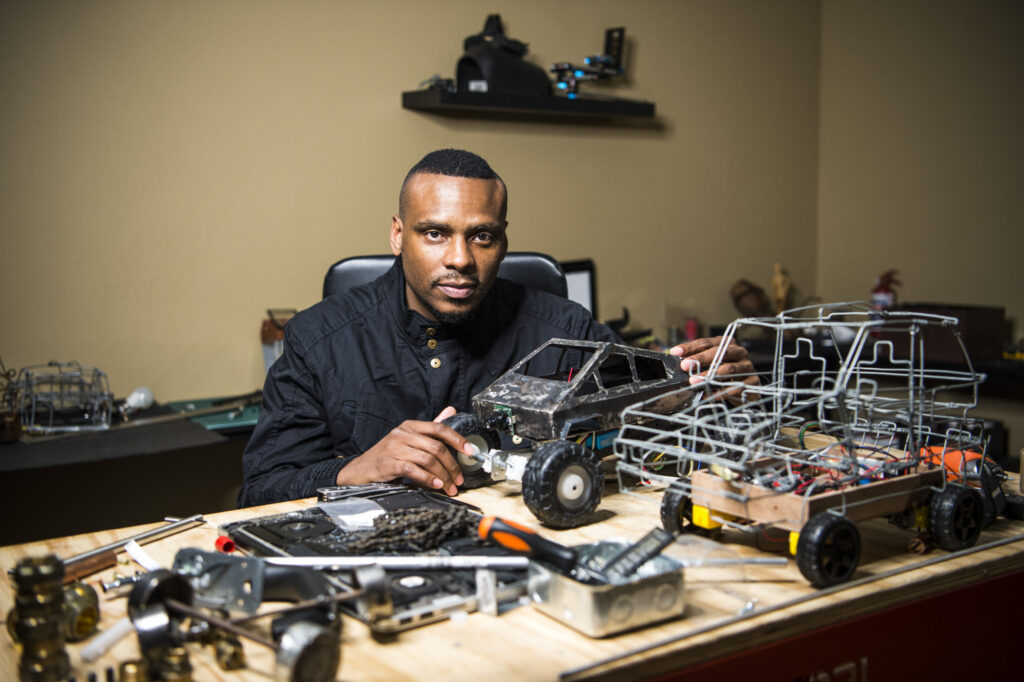Artist David Phume at his home/lab in Bryanston. (Photo Delwyn Verasamy/M&G)
In the maker tech arts there are four types of models. The first is static, the second is kinetic, the third is mechanical and then we have the autonomous ones. We build the static ones for the same reasons an artist would create a sculpture; purely for artistic expression.
The process in the workshop is the same to the process of an artist using a notebook to scribble. We scribble with stuff, not pen and paper. We even play around with prestik just to see what a model could look like. Although we might have an idea, being bound to physics is limiting, meaning we often have to find other means to communicate what we envision.
What inspires our work is our ethos: focusing on African problems and using technology to solve them. Africa experiences some of the problems it does because of a lack of technology. The mask represents Africa and it is connected to a device through the brain. It seeks to express that we are colonised in our minds, with the device representing the system we succumb to. In the industrial revolution, the slaves were the working force. The word “robot” actually means slaves. As Africans we are still part of that system: it cannot exist without us.
There is something special about static tech art. Because you are not creating for a mechanical purpose, it allows you to communicate other things.
 Artist David Phume at his home/lab in Bryanston. (Photo Delwyn Verasamy/M&G)
Artist David Phume at his home/lab in Bryanston. (Photo Delwyn Verasamy/M&G)
With kinetic work, the meaning comes from what it does. If you remember those wire cars back in the days in the townships, we are creating those, but we are making them autonomous. You put them in a track and they follow a specific object. It is a piece of art, but we are using it to test our skills and match up with what the world is doing in creating autonomous vehicles.
It sends a message about possibilities to the kid who is seven or 12 years old, living in the hood.
My view is that you don’t have to be doing something for many years to be good at it. Even with animation, it was something that I was really interested in and I knew that if I did it for a number of years, I could go into business with it.
Animation and robotics, in fact, are not too different. Both involve simulation and the software used is similar. With robotics, whatever you simulate through a computer, you still need to apply in real life using physics and mathematics. It might seem like rocket science but, once you get into it, it’s something that most people can do. We want to show people that it’s not for geniuses in Silicon Valley: we can be roboticists here in Africa and we can do it just as well.
David Phume is an executive director at Penthouse Media. Follow him on Medium